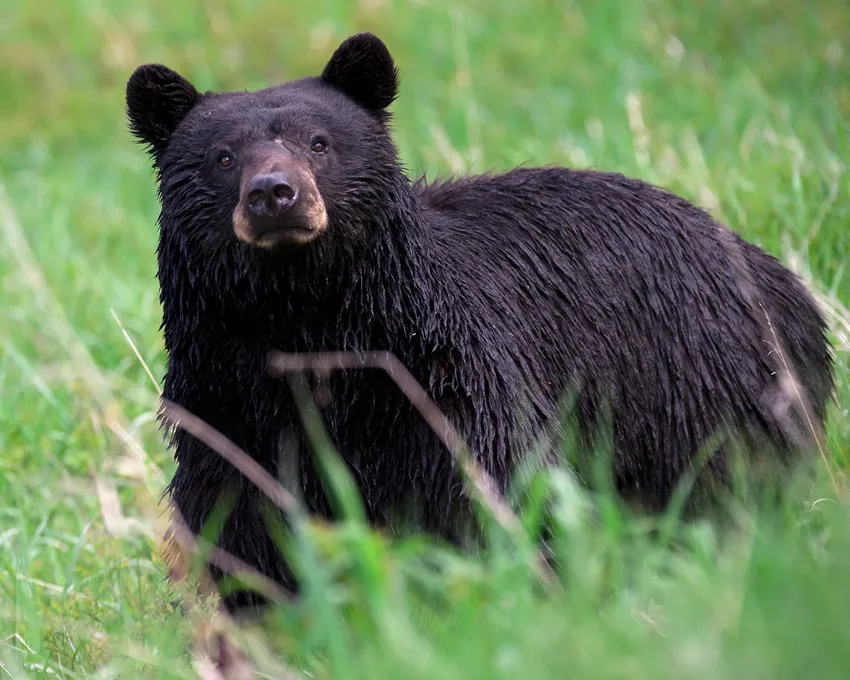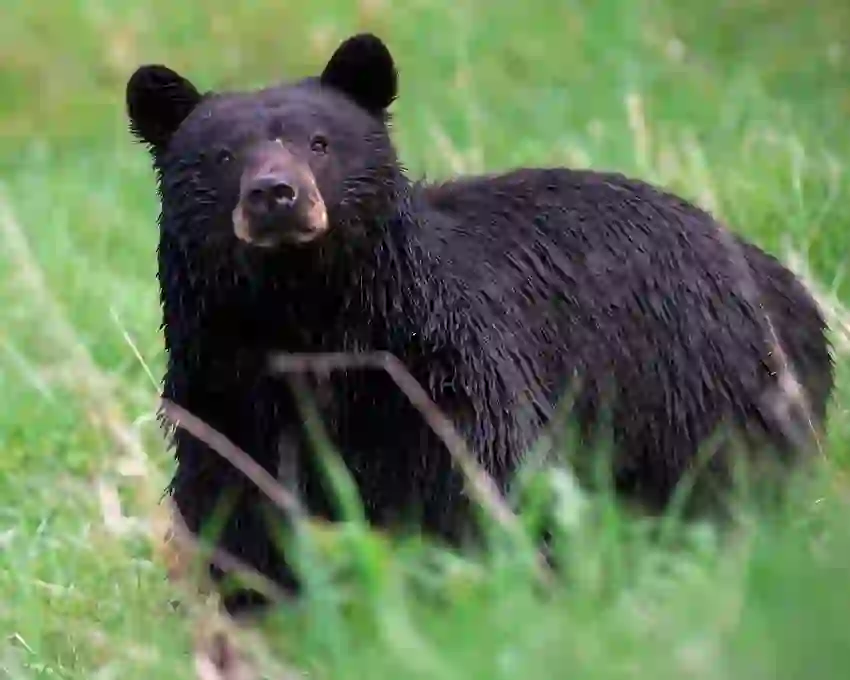
New Mexico Black Bear
New Mexico Black Bear
New Mexico Black Bear
In the southwestern United States, in the state of New Mexico, where majestic mountains and deep forests stretch, lives the New Mexico black bear. These bears, beloved as a state symbol, are an integral part of the local ecosystem. Let's explore the ecology of the New Mexico black bear, the environment they inhabit, and their relationship with humans.
New Mexico Black Bear Basic Infomation

| Property | Value |
|---|---|
| Scientific Name | Ursus americanus amblyceps |
| Taxonomic Status | SUBSPECIES |
| Rank | SPECIES |
| Vernacular Names | New Mexico black bear |
| Kingdom | Animalia |
| Phylum | Chordata |
| Class | Mammalia |
| Order | Carnivora |
| Family | Ursidae |
| Genus | Ursus |
| Habitats | Forests and mountains of New Mexico, USA |
| Conservation Status | Least Concern (IUCN 2023) |

Size
They measure about 3.9 to 5.9 feet (1.2 to 1.8 meters) long, and males weigh around 198 to 400 pounds (90 to 180 kilograms). Females are slightly smaller.

Lifespan
They live for about 15 to 20 years in the wild, and can live over 25 years in captivity.

Distribution
They are found throughout the state of New Mexico in the United States. They inhabit the forests and mountains of the state, with a preference for higher elevation mountains and dense forests, where food sources like fruits and insects are abundant.
New Mexico Black Bear Q&A

What kind of bear is the New Mexico black bear?
The New Mexico black bear is a subspecies of the American black bear, found in New Mexico.
They typically have black fur, but individuals with brown or reddish coats are also found. They are smaller, have rounder faces, and larger skulls compared to other American black bears. This is thought to be an adaptation to their diet, which includes a variety of nuts and fruits found in New Mexico. New Mexico black bears are omnivores, eating fruits, nuts, roots, insects, and occasionally small animals and carrion. They are good climbers and can often be seen eating fruit or resting high up in trees. They are also known to hibernate during the winter, spending the cold months in tree hollows or dens dug in the ground until spring arrives. The New Mexico black bear is the official state animal of New Mexico.

What do New Mexico black bears eat?
New Mexico black bears are omnivores, and their diet changes with the seasons.
In spring, they emerge from hibernation and eat grasses and buds. In the summer, they enjoy a variety of berries, fruits, and insects. In the fall, they eat large amounts of acorns and pine nuts to store fat for the winter. They do not eat anything during hibernation. They have a keen sense of smell and can detect the scent of food from miles away. They also use their strong forelegs to dig up roots and insect larvae. They are adept at finding food even in dry areas.

[Quiz!] How many New Mexico black bears are there in New Mexico?
It is estimated that there are about... 6,000 New Mexico black bears living in New Mexico.
They are widely distributed in the mountainous and forested areas of the state.

[Quiz!] Is it true that female New Mexico black bears give birth during hibernation?
Yes, it's true! Female New Mexico black bears give birth to 1 to 3 cubs during hibernation.
The cubs are very small and hairless when they are born. They are kept warm by their mother's body heat and feed on her milk. They emerge from the den with their mother in the spring.

[Quiz!] Are New Mexico black bears dangerous to humans?
New Mexico black bears are powerful animals and can attack humans.
However, they are generally afraid of humans and rarely attack proactively. If you encounter a New Mexico black bear, do not approach or provoke it, and quietly leave the area. When entering their habitat, be cautious and do not leave food unattended or litter, as these actions can attract bears to human settlements.

[Quiz!] Are New Mexico black bears endangered?
The New Mexico black bear is listed as 'Least Concern' on the IUCN (International Union for Conservation of Nature) Red List.
This means that they are not currently considered endangered. However, their habitat is being impacted by human activities, including deforestation and urban development. Conservation efforts are underway to protect them, but further measures are needed. New Mexico has implemented conservation measures to protect the New Mexico black bear, and their population is stable.

Would you like to become a part of the 'Animalbook.jp'?
Turn your knowledge into Q&A and share it with the world. ※Publication will be activated after purchase. Let's share information together!
New Mexico Black Bear Type of List

Efforts to Protect New Mexico Black Bears
- Habitat conservation: Protecting forests and creating corridors to connect fragmented habitats.
- Strengthening anti-poaching patrols: Increasing patrols and surveillance to apprehend poachers and prevent illegal trade.
- Preventing human-wildlife conflict: Educating local communities about bear-aware practices and distributing bear spray.
Information
Congratulations! You are the first commenter!

Create Your Favorite List!
New Mexico Black Bear
Save the animals you love! Build your own list to quickly revisit your favorites later.

Would you like to leave a comment?
※Please note: This is for the purchase of rights to post comments within the article.
Find Your Favorites!
Our shop offers a unique and attractive selection of goods themed around various animals.
New Mexico Black Bear References
New Mexico Black Bear Introduction of media used

Jim Martin, Public domain, via Wikimedia Commons

Help Enrich Our Animalbook.jp with Your Media!
We are constantly looking to expand and enrich our Animalbook.jp with amazing photos and videos of animals. If you have any media that you'd like to share, please contribute and help us showcase the beauty and diversity of the animal kingdom. Your submissions will be credited and featured in our encyclopedia, reaching a wide audience of animal lovers.


















